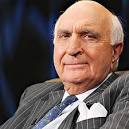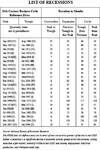As the 2014 mid-term election analysis continues, it is readily apparent that many voters and election experts say “the economy” is to blame for the major Republican win.
But what do voters mean when they register objections against “the economy,” especially as it affects their individual economic situations?

It’s safe to assume American voters naturally and understandably translate “the economy” into their immediate financial self-interests. This is not always true since voters also consider how their social, moral and religious values are translated into government policies.
However, when political commentators emphasize that voters were concerned about the economy, we can assume this means dissatisfaction over lower disposable incomes (hence the talk for a higher minimum wage which passed in five states), higher costs for education and medical services (accompanied by moves to reduce student debt and medical cost savings from the Affordable Care Act for millions.)
But digging deeper, concerns about “the economy” also include bigger and deeper concerns about whether the economic system is working to meet the needs of the majority of Americans. And that contentious, less discussed issue, pivots on the following:
Wealth Destruction from the 2008 Recession
The trillions in lost housing value and stock market wealth (as distinct from income) destroyed in the 2008 recession has yet to be replaced. Since housing wealth is greater than portfolio wealth for most Americans and often exceeds portfolio values, the residential real estate-mortgage-bank failure destroyed more wealth across all demographic and geographic segments that anything in modern times.
This recent recession caused the net worth of Americans to fall by 39% from 2007 to 2010, according to Kleinbart. This means that middle-class Americans found that their net worths were the same in 2010 as they were in 1992. Going back even further, the net worths of average American families did not increase from 2001 to 2010. This is nine years of working for average families and showing no significant improvements in quality of life or standard of living.
At the other end of the wealth spectrum, the incomes of those in the 95 percentile rose by 17% from 2001 to 2010. In more stark terms, the net assets of a family in 2010 were $66,000, with an income of $45,800. This also includes less-liquid assets (cars and houses) as opposed to stocks, which are only held by about 50% of families directly and indirectly (via a pension plan.) Of those who own equities, the average portfolio value was just $12,000, according to data from the Federal Reserve Survey.
These sad numbers also explain why most Americans distrust Wall Street, federal and state regulators who did almost nothing to prosecute those responsible for the unprecedented top-down and bottom-up mortgage fraud. This distrust also seeps into more people who question the direction of modern capitalism, including Pope Francis, who criticized the efficacy of “trickle down economics” and the dangers of pursuing “the idolatry of money.”
Pope Francis’ valid observation caused investment banker and staunch, self-proclaimed defender of capitalism Kenneth Langone to tell the Pope to find his own business.

No wonder voters are disgusted.
Recessions Are Inevitable
Older voters also know that recessions are inevitable, destruction and non-hedgeable. This means that in addition to stagnant wealth growth, people can lose even more when the next recession strikes, as this chart shows.

Lack of Social Mobility
Despite claims from the right that entrepreneurship is a guaranteed job creator and an increasingly important element of economic growth, income inequality has a direct impact on both current and future generations because it retards social mobility.
Studies on income inequality by Miles Corak (Income Inequality, Equality of Opportunity, and Intergenerational Mobility) and Sean Reardon of Stanford found that the educational opportunities afforded to high-income and low-income families is predictive of their future earnings potential, as well as their ability to move up the social ladder (intergenerational mobility.)
Mobility is affected by many factors (parent involvement, family structure, etc.), but there is also a direct link between incomes and the ability to move into a higher income class than your parents. When this mobility is derailed, voters can say it is “the economy,” when what they are experiencing is much more fundamental and persistent income inequality.
Researcher Corak has written that income inequality “shapes opportunity,” while it also changes incentives, and the formal institutions that determine which skills become valuable in the labor market. Since quality education is more accessible to wealthier Americans (who also spend about $9,000 annually on computers, tutors, private schools, etc., according to Corak), than the lower- and middle-class, mis-allocated U.S. educational spending on human capital is also a major cause of this lack of social mobility.
Countries with the lowest economic-social mobility across generations include the U.S. and the UK, while countries which have the greatest positive rate of mobility include Norway, Denmark, Finland and Sweden, where income inequality is much lower than in the U.S.
On a cultural note, it’s also interesting that as U.S. social-economic mobility decreases, there are also more TV shows on moving up the economic ladder by mining for gold, making cupcakes, selling inventions to investors, buying abandoned storage units and antique hunting. In short, it looks like these shows could be making voters more frustrated by watching these alternatives to their daily jobs as not being viable means to get rich. This only makes their work-a-day life only worse when they see a get-rich alternative as making fancy cupcakes or moving to Alaska.
Income Stagnation
Voters certainly know they are not getting richer and this also gets converted into a vote against “the economy.” This is certainly old news since wage stagnation has existed now for an entire generation.
Still, the voters know nothing has changed, so according to data from the Congressional Budget Office, income distributions from 1979 to 2007, found aggregate U.S. household incomes grew by $6 trillion (from $4.6 trillion to $10.6 trillion in 2009 dollars) but the middle class (those in the middle quintile of data) only captured 10% of this income growth amount, while the top 1% received 28% of those gains.
“In other words, the top one percent captured nearly three times as much of the total increase in the household economic pie as did the population 20 times as large as the in the middle of income distributions,” according to Edward D. Kleinbard, writing in the book, We Are Better Than This.
More recent data from 1979 to 2009 (a period which includes the start of the 2008 recession), median household incomes only increased by 14%, according to the Congressional Budget Office. This explains why more voters are living paycheck-to-paycheck and why more women have been forced to enter the workforce to make the two-income family more financially secure at the expense of having one parent readily available to run the household.
Researchers, such as Kleinbard, have also noted that any income gains posted by the American middle class over the past decades are only attributable to more women entering the workforce. This means two-parent incomes which comes at the social expense of a diminished family life for many.
Social Mobility’s Bottom Line
It’s clear to voters today that neither party has the answers, nor does either want to pint the finger at deficiencies in the currently political and economic systems. Both parties benefit from the Citizens United lawsuit and the proliferation of even bigger corporate and special interest investments in political candidates at all levels, from school board races in Minneapolis to Senate and governor races.
Income inequality has a much deeper impact than just money. It affects social structures and confidence in the capitalist system, which is still reeling from the 2008 recession. Focusing on systematic deficiencies may be the best way for both parties to regain the electorate’s trust.










